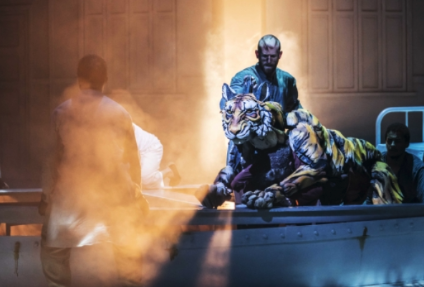I’ve had a week of highs and lows, theatrical excitement and anxiety. We are living through a really remarkable period of life, and it is impossible to separate what we see on our stages from the circumstances in which we’re viewing them. On the one hand, it is a relief to be back in theatres at all; yet at the same time, it comes with gnawing anxiety that they are not necessarily safe places to be.
More and more theatres are, fortunately, unilaterally demanding that their audiences wear masks, in the absence of anything more than guidance that they should from SOLT and UKT, as I wrote here; on the other hand, regulations are not always being strictly enforced, as a consultant anaesthesiologist found on a visit to Cardiff’s Wales Millennium Centre that left him saying that the “entire environment that myself and the public were exposed to as profoundly unsafe,” as I reported here.
I’ve certainly noticed in the last week a sudden increase in audiences wearing masks and being actively encouraged to do so, so maybe the threat of Omicron is actually changing people’s behaviour as well as the sense of responsibility that theatres should be showing to their customers.
And I’ve also had some really wonderful nights in the theatre that I wouldn’t have missed for the world.
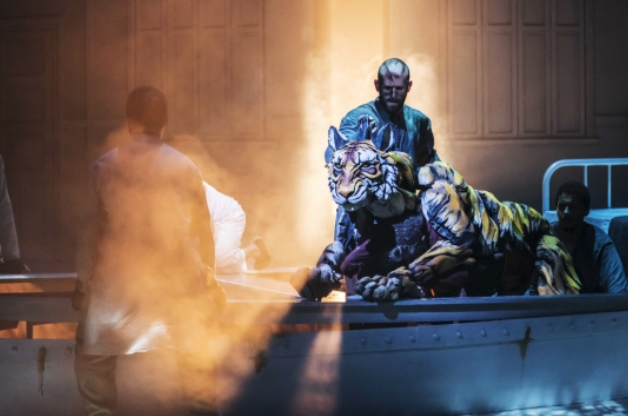
These included the long-delayed West End transfer of Life of Pi from Sheffield’s Crucible, where it originally premiered two and half years ago. Max Webster’s production — with Lolita Chakrabarti providing the stage adaptation to Yann Martel’s Man Booker prize-winning novel — is a theatrical wonder, in every sense: a show of deep theatricality, like a cross between The Lion King and War Horse on steroids in bringing a whole zooful of animals to life through Finn Caldwell and Nick Barnes’ puppets, gloriously complemented by Tim Hatley’s sets and Andrzej Goulding’s video and projections, that make it seem both realistic and tangible.
Though the lead critics for both The Guardian and The Times — both new in their posts since the show was originally reviewed by others in Sheffield — found themselves underwhelmed compared to their predecessors, I wonder if that was a matter of expectation. If found it an evening of sheer enchantment, and just wonderful, heartwarming storytelling about human survival.
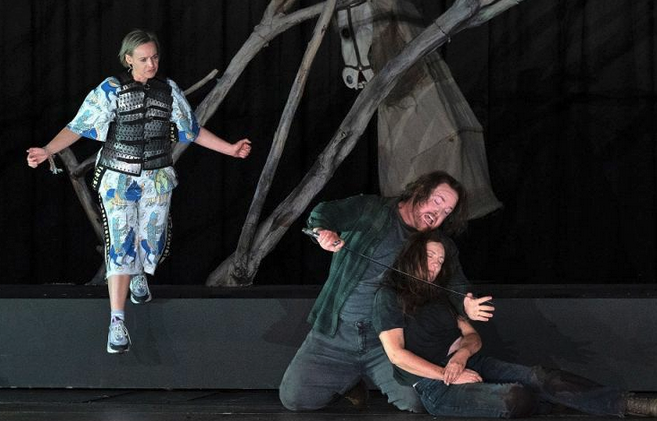
Wagner’s epic opera The Valkyrie charts a different kind of struggle for survival against the forces of mythological gods; though director Richard Jones, launching a new Ring Cycle for ENO in a co-production with New York’s Metropolitan Opera, faced his own struggles against the very real gods of Westminster Council who vetoed the use of the show’s fire effects, there was a burning intensity instead to the stunning vocal and instrumental performances of the company and Martyn Brabbins’ orchestra. The five hours plus running time passed swiftly, particularly thanks to the thrilling singing of Nicky Spence’s Siegmund, Emma Bell’s Sieglinde, Matthew Rose’s Wotan, and Brindley Sherratt’s Hunding.
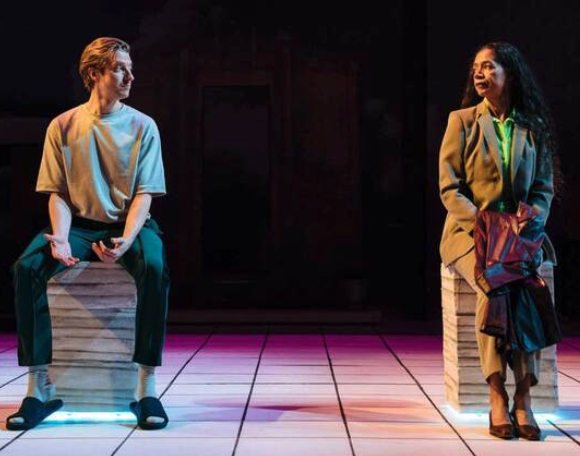
By contrast, Al Smith’s Rare Earth Mettle was a long, hard slog at the Royal Court: a new play running to over three hours, and staged with a thudding obviousness by Hamish Pirie. (I couldn’t help thinking what a director like Max Stafford-Clark or Ian Rickson — both former artistic directors of this theatre — could have done to give the play more theatrical life). There’s some bright ideas percolating inside the play, but in its current form, it is shapeless and formless.
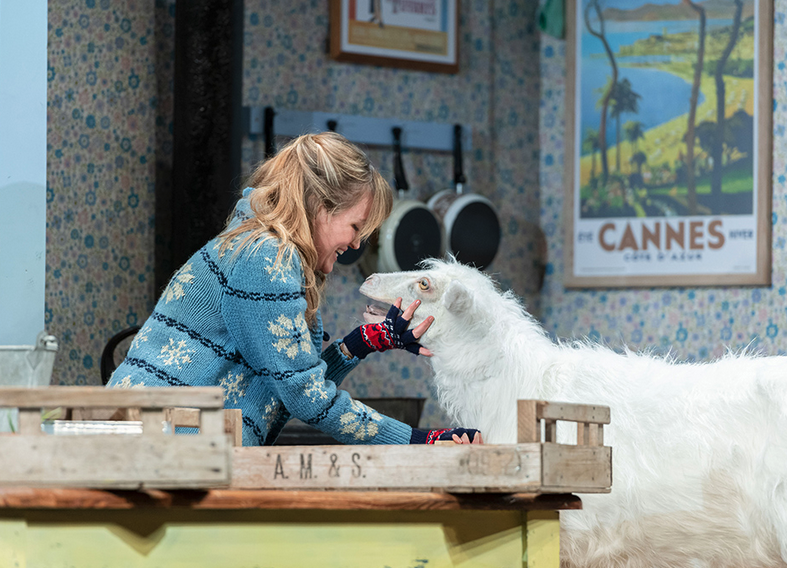
Finally, The Good Life at Chichester Festival Theatre — a new stage version of the favourite BBC 70s sitcom — couldn’t be more of a contrast, but also does exactly what it sets out to do: provide an audience with fond memories of the original with a new story but familiar characters. A bit like a 70s play that Alan Ayckbourn could have written, the actors here cannot possibly compete with their TV predecessors, of course, but they’re canny enough to provide plenty of charm in their own right. Rufus Hound and Sally Tatum (pictured above) are ideal as the title couple,Tom and Barbara Good, seeking an alternative way of life; while Dominic Rowan — one of our most unsung but brilliant straight actors — and Preeya Kalidas are just hilarious as their uppity neighbours, Jerry and Margo Leadbetter. It’s a seriously retro joy.

